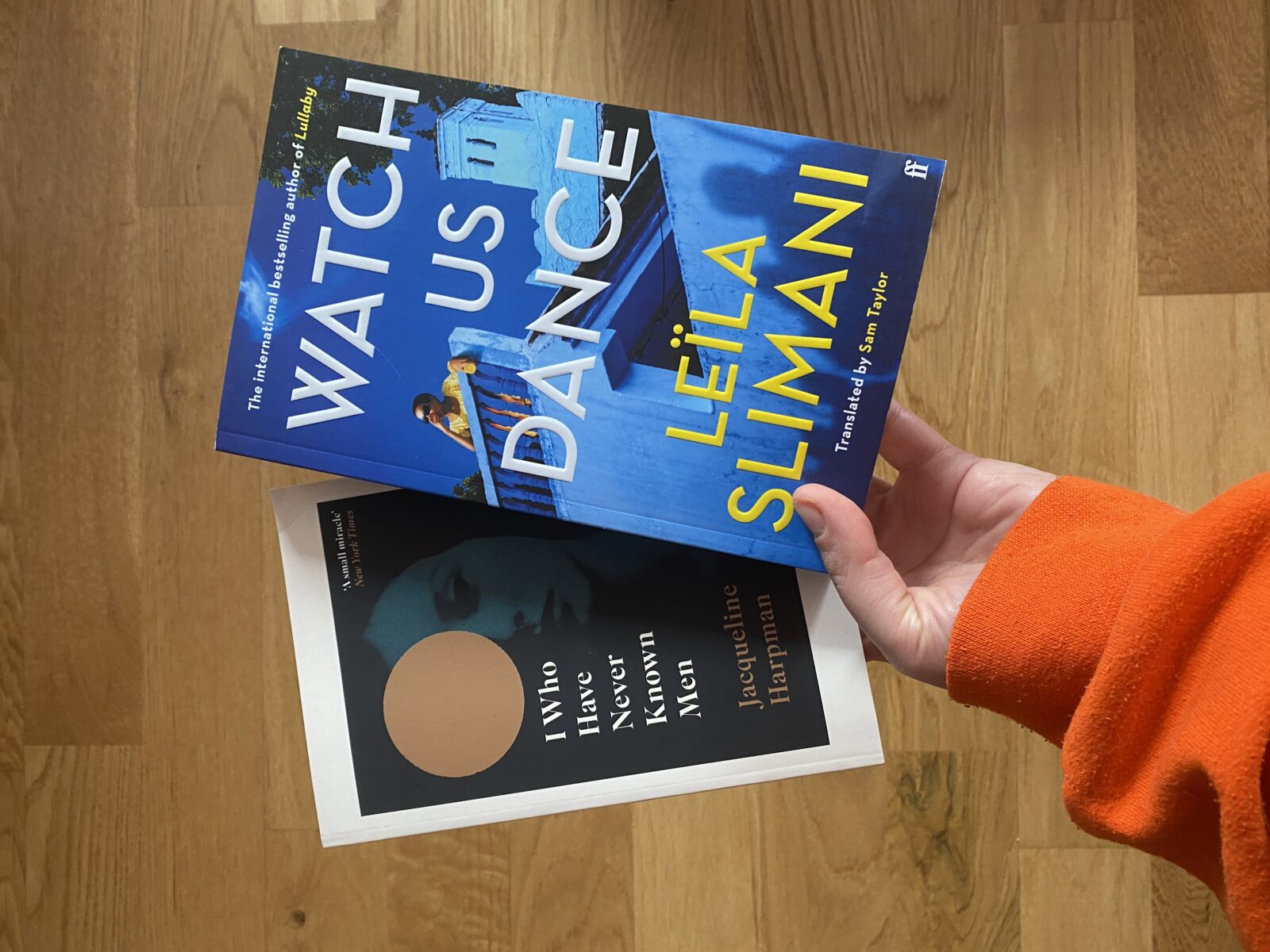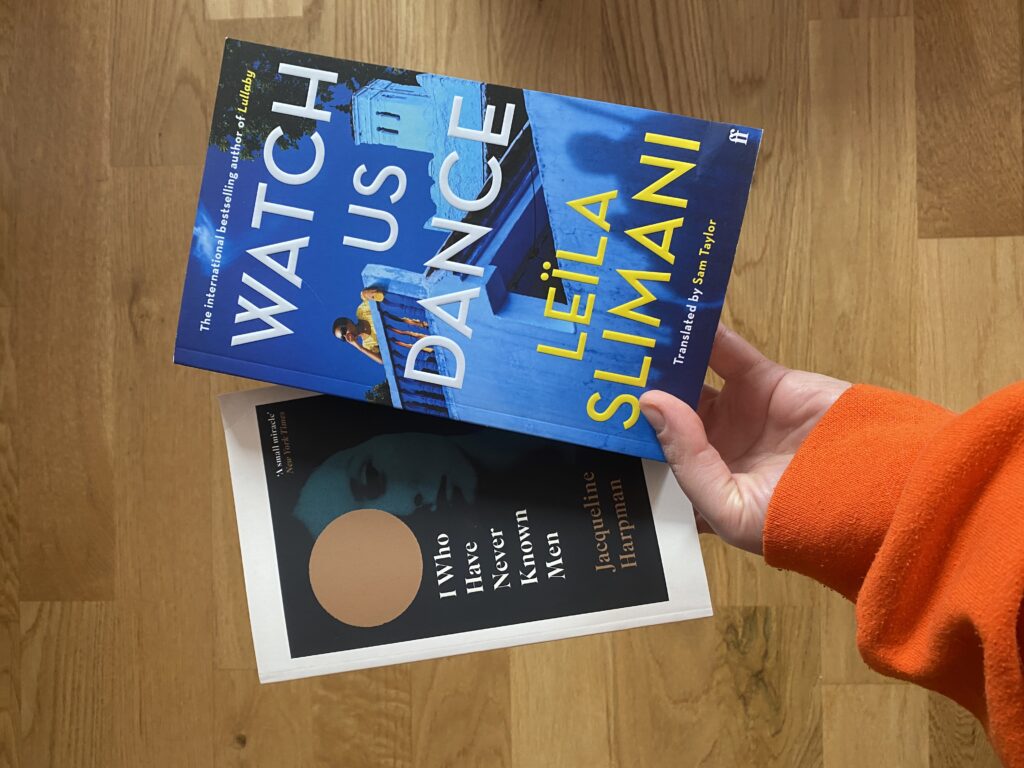I Who Have Never Known Men, Jacqueline Harpman
I thought to give myself a few more days to write this, for distance’s sake, but I don’t think any amount of time will make this novel less horrifying to me. Or the novel’s plot, I should say. Now, I really do not know why this novel is having a resurgence right now, as it was originally published in 1995, but I will warn you now, SPOILERS ahead. I don’t know if I can completely explain what I found to be so disturbing about this novel without a spoiler or two. The story opens with a group of 40 women who have been together in an underground bunker in a cage for years, none of them can say exactly how many, always guarded by three men. The youngest woman, who does not even know her name because she was a toddler when everything happened, and who is also the narrator, is nearest the hatch where the guards leave food when the sirens go off. The guards immediately disappear and she opens the hatch. They escape, only to find that the outside world is another kind of prison –rolling plains in all directions with another underground bunker every few kilometers or so – and none of the other groups were so lucky as them. There are no answers for them. There is something so haunting about the world Harpman has created, along with her prose and the narrator’s way of analyzing what is happening to her, that left me disturbed. As some of the popular the memes go, “this book destroyed me, 100% recommend”.
Watch Us Dance, Leïla Slimani
Watch Us Dance is the second book of Slimani’s trilogy that follows a Moroccan family first during French colonization, and then in the post-colonization phase. (The third and final novel will be set during globalization, in the 1980s and 90s). Mathilde and Amine’s two children, Aïcha and Selim, are now grown, and the novel follows not only their lives in university and after school, but also the lives of their parents, as Mathilde and Amine deal with not having children at home and the success their farm has given them. What I love about Slimani’s writing is her ability to make the mundane everyday happenings seem like they are exactly the opposite. Through her characters, readers get to know the history of the country, and I am certain the third novel will serve as a bridge to Morocco’s current circumstances, as we are all still facing globalization and its consequences on a daily basis. I am quite aware that this short paragraph does not do Slimani’s work justice, so please just go and read it!

